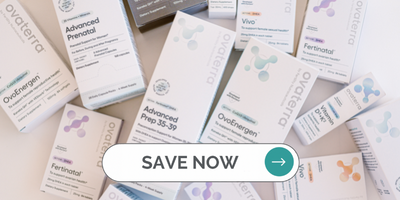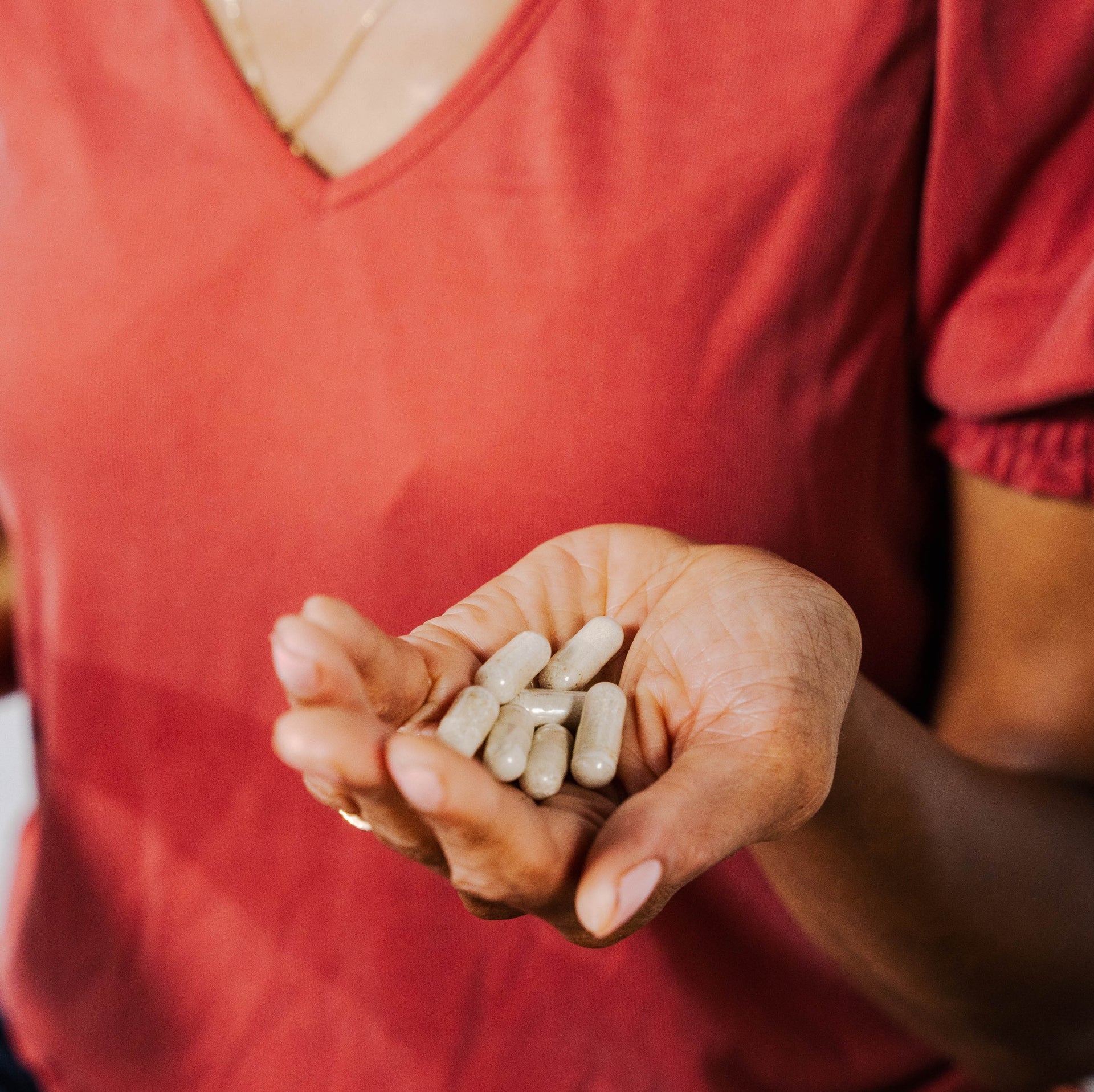Doctors advise against drinking any amount of alcohol when pregnant. It’s because studies clearly show that alcohol consumption during pregnancy can lead to a range of serious birth defects and developmental challenges for the baby, as well as increased risks of poor prenatal outcomes, like low birth weight and preterm birth.
Because women can be pregnant for up to 4-6 weeks without realizing they are, some women do end up having alcoholic drinks in the early stage of a pregnancy. Should you worry if this happen to you? And what should you do to prevent Fetal Alcohol Syndrome and Fetal Alcohol Spectrum Disorders? Let's take a look at what the science says.
What is fetal alcohol syndrome?
Fetal Alcohol Syndrome (FAS) is the most severe form of a group of conditions, called Fetal Alcohol Spectrum Disorders (or FASDs). FASDs affect people who were exposed to alcohol before birth.
How common is drinking alcohol during pregnancy?
While alcohol consumption has gone down among the Millennials and Gen Z in the US, beer, wine and other alcoholic beverages are a part of life’s enjoyment for many. For example, in a 2019 survey, about 70% of US adults reported that they had at least one drink in the last year, while 51% of women reported drinking alcohol in the past month.
Survey-based studies have found that that about 10% of women in the US drink alcohol during pregnancy. A 2014 study, analyzing a dataset of over 311,000 records, found that of women who drank alcohol before pregnancy, 87% quit while pregnant, but about 7% reduced the amount and 6% didn’t change their drinking behavior. Given self-reported surveys tend to underreport on “vice” activities, the actual rates may be higher.
How common is fetal alcohol syndrome?
FAS and FASDs are preventable, but still affect a sizable portion of babies born in the US. Scientists estimate that up to 5% of children born in the US may be affected by FASDs, with the more severe FAS affecting 2-7 out of every 1,000 births. In 2020, in which the US saw 3.6 million births, these percentages would have translated into over 180,600 babies affected by FASDs and up to 25,000 babies affected by the more severe FAS.
How does alcohol affect the baby?
Babies with FAS develop problems with the formation and functioning of the brain, as well as overall growth. People affected with FAS can have trouble with learning, attention span, communication, vision and more. Less severe forms of FASDs also include problems with behavior and learning, as well as physiological problems with the heart, kidneys or bones.
Can fetal alcohol spectrum disorders be cured?
There is no cure for Fetal Alcohol Spectrum Disorders or Fetal Alcohol Syndrome – these are a lifetime diagnosis. While early intervention (especially before age 6), support and treatment can improve the baby’s future trajectory, prevention by avoiding alcohol during pregnancy is the best approach.
How does alcohol cause FASDs?
When a mom consumes alcohol, alcohol and its metabolite (acetaldehyde) enters the baby’s bloodstream through the placenta. Both alcohol and acetaldehyde are known teratogens (factors that cause embryonic malformations).
Scientists still don’t understand the mechanism fully, but there are multiple theories on how alcohol may cause birth defects and other forms of FASDs, including:
- Alcohol-induced cell death
- Changes in how cells go through the lifecycle and proliferate
- Changes in how neuronal cells migrate to different parts of the brain
- Damages from increased oxidative stress
- Reductions in Retinoic Acid signaling that can affect organ development
What other prenatal outcomes does alcohol impact?
Alcohol consumption during pregnancy negatively impacts perinatal outcomes, too. Alcohol’s negative effects on pregnancy include:
- Slower-than-normal growth in utero
- Low birth rate
- Congenital abnormalities
- Prematurity and preterm birth
- Miscarriages and still births
How much alcohol is safe during pregnancy?
The CDC and other prenatal health authorities agree that there is no “safe amount of alcohol” during pregnancy. The severity of the impact on the baby and the health of the pregnancy depends on multiple factors, including genetics, maternal age, the baby’s gestational age and the mom’s efficiency of alcohol metabolism, among others. These factors make it difficult to know whether any amount is safe for a specific person.
What if I was drinking alcohol before I knew I was pregnant?
Because most women are unaware that they are pregnant in the first few weeks of a pregnancy, the CDC and others recommend abstaining from alcohol entirely when you are actively trying.
This recommendation makes sense, but what if you were drinking in the early weeks of your pregnancy that you didn’t know about?
Alcohol and pregnancy: Study results are a bit mixed
Contrary to the blanket recommendation from the CDC and others, study results are somewhat mixed on the safety of alcohol consumption in the early stage of a pregnancy. For example, a large study of over 5,600 women found that drinking alcohol up to the 15th week of a pregnancy may not lead to any significant increase in the risk of intrauterine growth restriction, premature birth or low birth weight.
The study is limited in that it didn’t evaluate alcohol’s effects on behavioral or cognitive functioning of the babies, but it does complicate the picture. Several other studies like this one and this one also failed to find a connection between low to moderate alcohol consumption during pregnancy and low birth weight or preterm birth.
That doesn’t mean drinking alcohol during pregnancy is a good idea. There are plenty of other studies showing that alcohol consumption significantly raises the risks of FASDs and negative perinatal outcomes.
Should I worry if I had alcoholic drinks before I knew I was pregnant?
Given the very small amount of blood flowing through the placenta in the early weeks of a pregnancy, if you happened to be drinking before you knew you were pregnant, as long as it was in moderation, you shouldn’t panic. The important thing is to stop now.
What to do if you had alcoholic drinks early in a pregnancy
Especially for women who weren’t actively trying, accidentally drinking alcohol in the early weeks of a pregnancy can happen. If this is you, what should you do?
ACOG (American College of Obstetricians and Gynecologists) say not to worry: A small amount of alcohol early in the pregnancy is unlikely to cause severe problems.
- Stop now: The best thing is to stop drinking alcohol as soon as you realize that you are pregnant. The baby’s brain and other organs keep developing throughout the pregnancy, so stopping alcohol consumption will help support the baby’s healthy development in the rest of the pregnancy and beyond.
- Talk to your doctor: While parents – especially those of us who have struggled on the fertility journey - wouldn’t want to take the risk knowingly. Don’t blame yourself, and talk to your doctor if you have concerns. They are in the best position to guide you and help you refrain from alcohol in the rest of your pregnancy.
- Support baby's brain development: Help the baby's brain develop by making sure your prenatal nutrients are up to par. Folate (folic acid) and Choline are two at the top of the list. These additional prenatal nutrients are also key to baby's brain health.
- Up your antioxidant intake: Alcohol consumption in general has been shown to deplete your body's antioxidant arsenal. Replenishing the antioxidants with a high-quality prenatal vitamins that include antioxidants like Vitamin C and Vitamin E, as well as coenzyme Q10 (CoQ10) may be a good idea.
Ovaterra provides reproductive health resources for general, educational purposes only. This content is not intended to replace medical advice from a qualified healthcare professional. Similarly, when making your financial decisions, please consult qualified financial professionals who can make individual recommendations.









